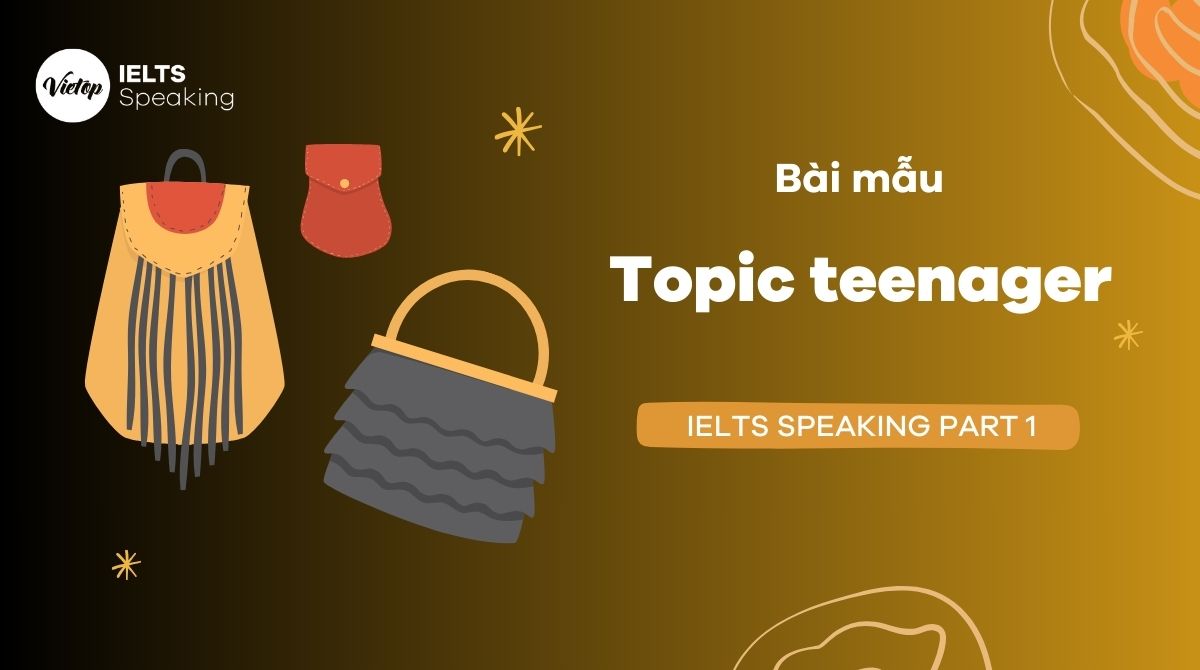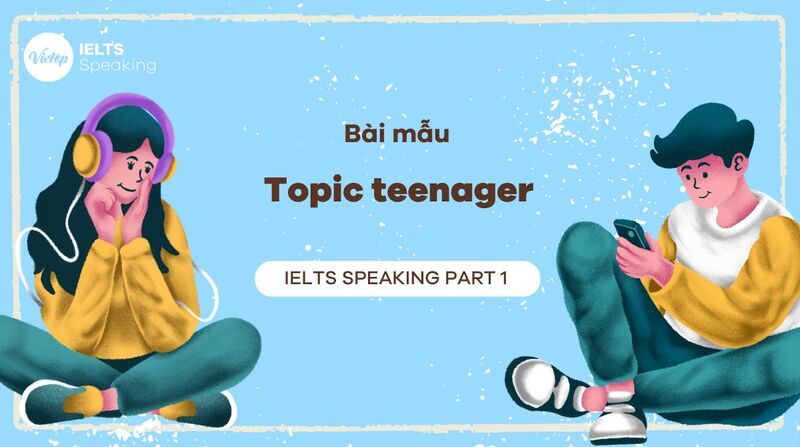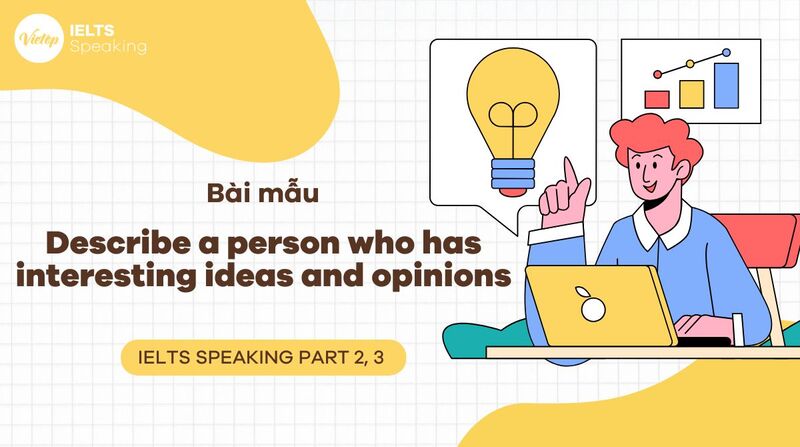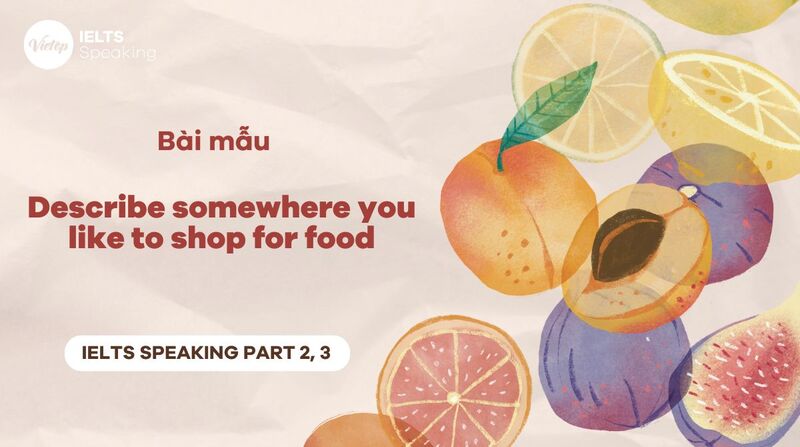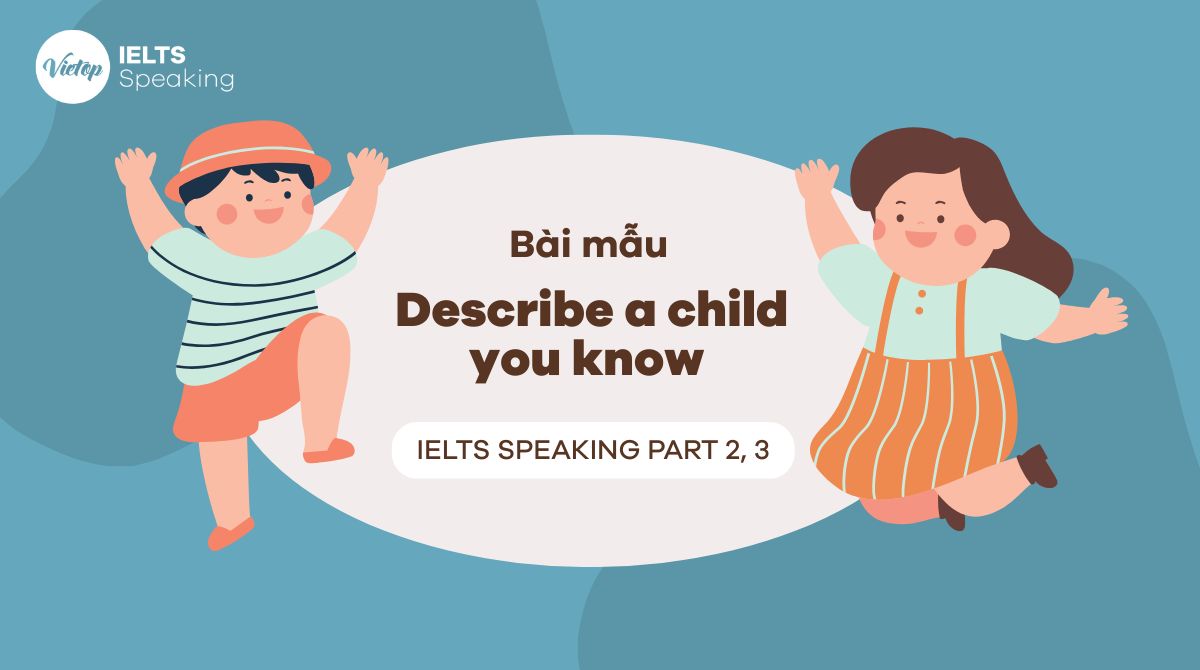Vietop gửi bạn bài mẫu giải đề Speaking ngày 03/10/2022, cùng tìm hiểu và luyện tập IELTS Speaking thật tốt nhé!
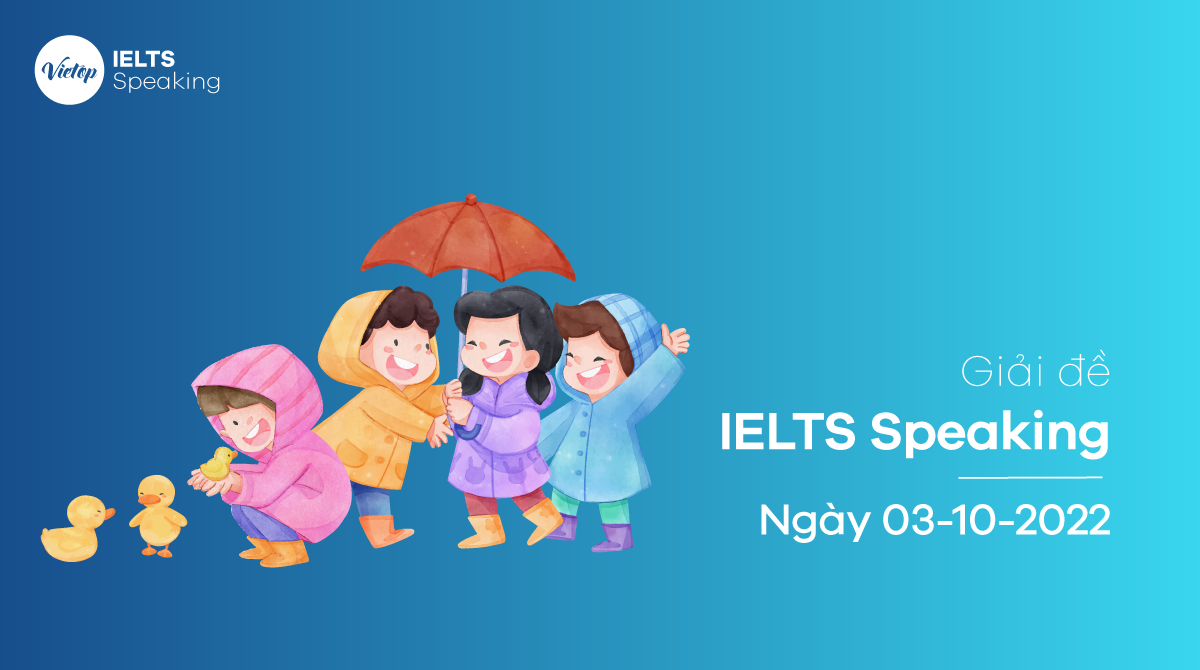
IELTS Speaking Part 1: Rain
Sample
Do you like rainy days?
I used to like them when I was a child, I liked getting wet in the rain. Now that I work far away from my place, rains are an inconvenience because I travel to work on motorcycles.
Does it rain much in your country?
In the rainy season, which I believe is between April and November, there’s a lot of rain. Sometimes, there’s a downpour for days on end.
- Downpour (n): cơn mưa tầm tã
- For days on end: qua nhiều ngày
What do you often do when it rains?
If I don’t have work or chores, I often stay in my room and listen to music or read books. If I’m really tired, I do love a good nap. It’s oddly satisfying to nap when it’s raining outside.
Oddly (adv): một cách lạ lùng
Tham khảo:
Audio
IELTS Speaking Part 2
Describe a time when someone apologised to you
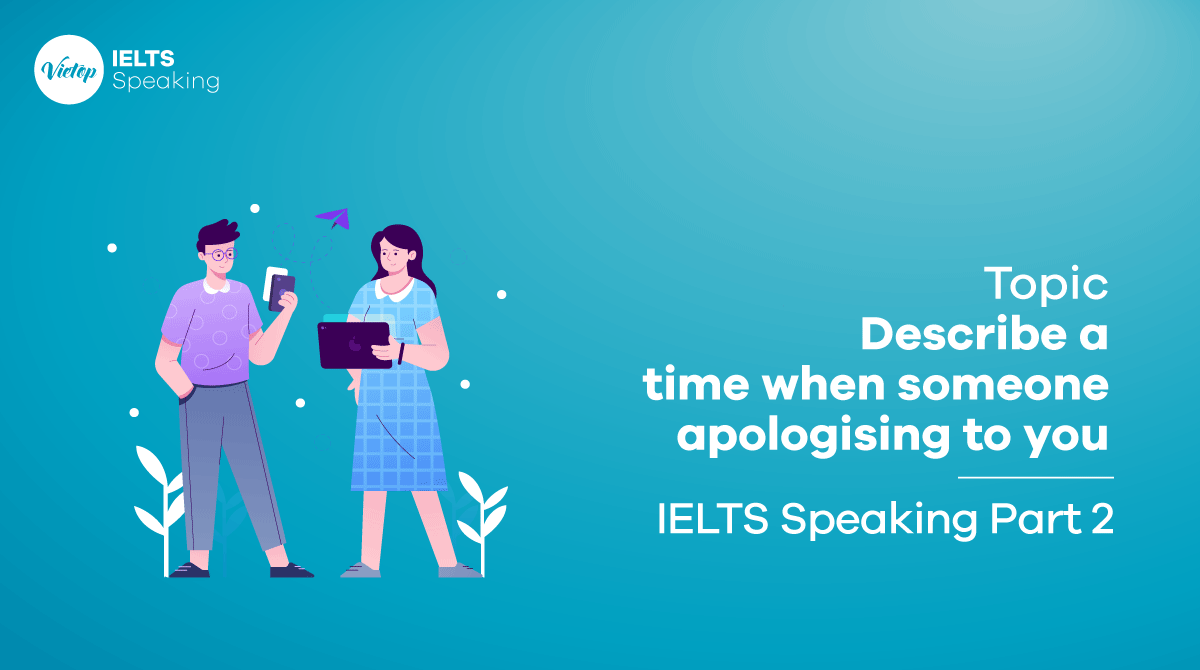
You should say:
- When it was
- Who this person is
- Why he or she apologised to you
And how you felt about it.
Sample
I’m going to tell you the story of my brother apologising to me.
My brother is five years younger than me, and ever since our childhood, we have never really been on good terms. I always think our parents pamper him too much and he never listens to what I say.
The incident happened when he started working in his sophomore year. It was the first time he could make some money to support himself. However, he splurged on a new motorcycle and a new iPhone. With his meagre salary as an intern, he had to pay in instalments.
I was concerned about this and gave him a lecture on how to save money. He ignored it at first, but I kept pushing it and he was upset at me. I was also frustrated with him. We didn’t talk for a long time. Then suddenly, he got sick and couldn’t work for two months and he was late on his payments. Consequently, he had to take on other jobs and his academic performance suffered. He ended up having to retake many courses and it cost him a lot of money.
One day not long after, unexpectedly, he sent me a text message telling me that he was sorry and that he should have taken my advice. His action was out of his character, but it was heartwarming to me. Maybe my brother has grown up after all. Even though it was just a text message, I knew he had to swallow his pride. Our relationship has gotten better since then.
- To be on good terms: Có mối quan hệ tốt
- To pamper (v): nuông chiều
- To splurge (v): tiêu xài
- Meagre (adj): ít ỏi
- To pay in instalments: trả góp
- To end up (v): rốt cuộc
- To swallow one’s pride: hối lỗi
→ Đề yêu cầu thí sinh phải kể về một lần được người khác nói lời xin lỗi. Đây là dạng kể chuyện và cần phải có các tình tiết diễn tiến theo thời gian.
Bạn nên kể ra một tình huống đơn giản, dễ hiểu. Phần giới thiệu ngữ cảnh đến lời xin lỗi là quan trọng cho tính liên kết của câu trả lời (ai phạm lỗi với thí sinh, lỗi đó là lỗi gì, cảm xúc của bản thân khi bị như vậy). Về lời xin lỗi, hãy kể là người đó xin lỗi lúc nào, qua phương tiện gì (nhắn tin, trực tiếp, gọi điện, email…) rồi kể cảm giác của bạn ra sao.
Gợi ý diễn tiến câu trả lời: Giới thiệu nội dung → Ngữ cảnh → Lời xin lỗi → Cảm nghĩ/Kết cục
Ngoài ý tưởng trong bài, bạn cũng có thể dựa vào những tình huống như ai đó vô tình làm bạn bị đau, ai đó mượn đồ của bạn nhưng làm thất lạc, ai đó xin lỗi vì nói lời làm tổn thương bạn.
Xem ngay:
Topic Talk About Yourself – IELTS Speaking Part 1
Topic hobbies – Talk about your hobbies – Bài mẫu IELTS Speaking part 1
Audio
IELTS Speaking Part 3: Apology
Sample
1. On what occasion do people usually apologise to others?
For most people, we apologise to others when our actions have caused inconvenience or harm in some ways. It can be as simple as bumping into others when we are not looking or as severe as causing an accident. I believe a sincere apology is the first step to improve such situations.
- A sincere apology: lời xin lỗi chân thành
→ Kể ra những dịp hay tình huống mà mọi người thường phải nói lời xin lỗi. Nó có thể là những lỗi vô tình hay cố ý.
Bạn hãy cố gắng khai triển bằng cách dẫn chứng thực tế và cũng có thể nêu quan điểm cá nhân của mình về những tình huống này. Chú ý có thể sử dụng những từ hay cụm từ như: intentional (cố ý), unintentional (vô ý), an honest mistake (ý nói đây là lỗi không do cố ý), to make an apology (nói lời xin lỗi)
Xem ngay: Khóa học IELTS Online – Online trực tuyến cùng chuyên gia IELTS 8.5
2. Do you think people should apologise for everything wrong they do?
Intuitively, I want to say we need to take responsibility and own our mistakes even when it’s an honest mistake. However, apologising for everything, especially when you make a series of mistakes, can be seen as insincere. For instance, it is common for people to make many errors on their first days of work.
And though sometimes we need to apologise to our supervisors, I believe in this case, actions speak louder than words. Instead of saying sorry every time we make a mistake, we can ask for feedback and try doing better.
- Intuitively (adv): theo trực giác
- Series (n): hàng loạt, chuỗi
- Insincere (adj): không chân thành
- Actions speak louder than words: hành động có ý nghĩa hơn lời nói
→ Câu hỏi yêu cầu thí sinh đánh giá chúng ta có nên nói lời xin lỗi cho tất cả mọi lỗi lầm mình gây ra hay không.
Bạn có thể nói có rồi phân tích về việc tích cực của việc xin lỗi (cho thấy tinh thần trách nhiệm, là việc làm có đạo đức, giúp giải tỏa tình huống căng thẳng…) hoặc phân tích thêm có một vài tình huống việc xin lỗi là không cần thiết như trên bài.
Có thể sử dụng các từ/cụm từ: a moral thing to do (moral = có đạo đức), sincere (chân thành). Khi đưa ra nhận định cá nhân nên nhấn mạnh bằng: I believe, I think.
3. Why do some people refuse to say “sorry” to others?
Ignorance and pride are why many people find it impossible to apologise. That’s said, some people simply can’t believe that they’re in the wrong. It’s hard to say sorry if you think you’re right. But sometimes, even when they’ve realised that they need to apologise, the embarrassment is unbearable to them. I think most people have been in these situations. However, some people have more pride than others and therefore, always refuse to say sorry.
- Ignorance (n): sự thiếu hiểu biết
- Pride (n): sĩ diện, lòng kiêu hãnh
- Unbearable (adj): không thể chịu đựng nổi
→ Câu hỏi yêu cầu thí sinh nêu lí do vì sao một vài người không chịu xin lỗi người khác.
Bạn có thể phân tích là một vài người có tính tự tôn cao hay thiếu hiểu biết nhưng nghĩ mình là đúng như câu trả lời mẫu. Bạn cũng có thể nêu những lí do khác như do cách giáo dục, do văn hóa, … Nên khai triển bằng cách giải thích vì sao mình lại có ý kiến như vậy.
Xem ngay:
Describe your favorite part of the day – IELTS Speaking part 2 sample
Cách trả lời IELTS Speaking Part 3 trong các tình huống khó
Audio
Trên đây là giải đề IELTS Speaking ngày 03/10/2022, hy vọng đã giúp bạn có nhiều từ vựng và ý tưởng hơn để triển khai trong phần thi của mình nhé! Và nếu đang luyện thi IELTS thì hãy liên hệ với Vietop để được tư vấn nếu học mãi mà vẫn chưa nâng điểm được nhé.

